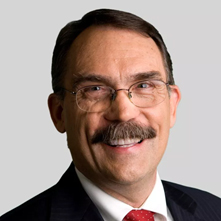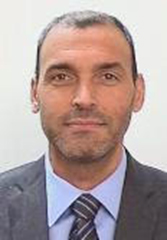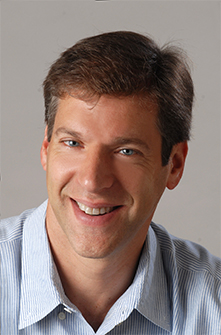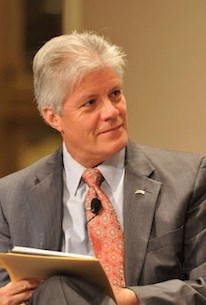
As we put together the agenda for a conference that brings together energy thought leaders from around the world, we want to remind you that Early Bird Pricing is Open!
Meet the Microgrid Experts on Our Advisory Board
Andrew McCallister

Andrew McAllister was appointed to the California Energy Commission by Gov. Brown in May 2012. Commissioner McAllister has been working on clean energy deployment and policy for his entire 30-year career: beginning in project engineering and development, evolving into program design and implementation, then moving into the policy arena. He has worked across the world to develop renewable energy generation, energy efficiency investments, and energy management systems, with counterparts ranging from tiny remote communities to the largest of utilities. He administered two of California’s signature renewable energy programs (California Solar Initiative, Self-Generation Incentive Program). He currently serves on the board of directors of the National Association of State Energy Officials and the Alliance to Save Energy.
Before joining the Energy Commission, Dr. McAllister was managing director at the California Center for Sustainable Energy. Previously, he worked with NRECA International in the electric sectors of countries in Central and South America, Southeast Asia and Africa and at Lawrence Berkeley National Laboratory. He has a PhD from the Energy & Resources Group at UC Berkeley and is a Returned Peace Corps Volunteer.
Commissioner McAllister’s deep grounding in technology, policy and marketplace provides him with uncommon insight on the accelerating changes taking place in the electric power sector.
Dr. Charlie Gay

Dr. Charlie Gay is the director of the U.S. Department of Energy (DOE) Solar Energy Technologies Office. In this position, he leads a team that is dedicated to early-stage research and development of solar technologies, with a focus on how they contribute to supporting the reliability, resilience, and security of the U.S. electric grid.
Charlie is an internationally recognized pioneer in photovoltaics. After starting his career in 1975 designing solar power system components for communications satellites at Spectrolab, Inc, he later joined ARCO Solar, where he established the research and development program and led the commercialization of crystalline silicon and thin film technologies.
In 1990, he became president and chief operating officer of Siemens Solar Industries, and from 1994 to 1997, he served as director of DOE’s National Renewable Energy Laboratory. In 1997, he was named president and chief executive officer of ASE Americas, Inc., and from 2001 to 2005 served as founding chairman of the technical advisory board at SunPower Corporation. He joined Applied Materials in 2006 as corporate vice president and general manager of the Solar Business Group. He served as president of Applied Solar and chairman of the Applied Solar Council from 2009-2013. As president, Charlie was responsible for positioning applied materials and its solar efforts with important stakeholders in the energy industry, technical community and governments around the world.
He earned a Ph.D. from the University of California, Riverside and was elected a member of the U.S. National Academy of Engineering in 2013. He established the Greenstar Foundation in 1997 to demonstrate an economically sustainable model that delivers solar power and internet access for health, education and microenterprise projects to developing world villages.
Jon Exel

Jon Exel is a Senior Energy Specialist at the World Bank Group. He leads the Global Facility on Mini Grids and manages the Energy Access for the Urban Poor initiative at the World Bank Group. He previously worked with the World Bank from 1998 to 2004 on renewable energy operations in Asia and Africa. Jon has also worked with private investors, governments, nongovernmental organizations, and started the first registered mini-hydropower development company under the new energy policy and regulations in Croatia. Jon has over two decades of experience in energy access and alternative energy sector, working with diesel, solar, hydropower, wind, and biomass-based energy systems, developing expertise in the delivery of energy services to large groups of end users; business plans and delivery models; pre-investment and investment plans; market intelligence; and how institutions plan and operate. Jon has lived and worked in Liberia, Indonesia, Bosnia and Herzegovina, East Jerusalem, and Cambodia. Jon holds a MA in Energy Engineering and Business Administration.
Dr. Daniel M. Kammen

Dr. Daniel M. Kammen is a Professor at the University of California, Berkeley, with parallel appointments in the Energy and Resources Group where he serves as Chair, the Goldman School of Public Policy where he directs the Center for Environmental Policy, and the department of Nuclear Engineering. Kammen is the founding director of the Renewable and Appropriate Energy Laboratory (RAEL; http://rael.berkeley.edu), and was director of the Transportation Sustainability Research Center from 2007 – 2015.
Dr. Kammen was educated in physics at Cornell (BA 1984) and Harvard (MA 1986; PhD 1988), and held postdoctoral positions at the California Institute of Technology and Harvard. He was an Assistant Professor and Chair of the Science, Technology and Environmental Policy Program at the Woodrow Wilson School at Princeton University before moving to the University of California, Berkeley. Dr. Kammen has served as a contributing or coordinating lead author on various reports of the Intergovernmental Panel on Climate Change since 1999. The IPCC shared the 2007 Nobel Peace Prize.
He was appointed by then Secretary of State Hilary Clinton in April 2010 as the first energy fellow of the Environment and Climate Partnership for the Americas (ECPA) initiative. He began service as the Science Envoy for U. S. Secretary of State John Kerry in 2016, but resigned over President Trump’s policies in August, 2017. He has served the State of California and US federal government in expert and advisory capacities, including time at the US Environmental Protection Agency, US Department of Energy, the Agency for International Development (USAID) and the Office of Science and Technology Policy.
Karl R. Rábago

Karl R. Rábago is the Executive Director of the Pace Energy and Climate Center, at the Pace University School of Law in White Plains, New York. Under Karl’s leadership, Pace is actively involved in every aspect of the New York REV—Reforming the Energy Vision—proceeding. Karl is also co-director of the Northeast Solar Energy Market Coalition (NESEMC), a US Department of Energy SunShot Initiative project that works to harmonize solar market policy in the 9-state northeast region through a novel coalition of solar business associations.
An attorney and US Army veteran, Karl has more than 25 years of experience in electricity and energy policy, regulation, and markets. He is recognized as an innovator in electric utility regulatory issues relating to clean energy services and technologies. Karl serves as Chair of the Board of the Center for Resource Solutions, a San Francisco-based non-governmental organization that works to advance voluntary clean energy markets. He also sits on the Board of the Interstate Renewable Energy Council (IREC).
Karl also runs his own successful consulting practice, Rábago Energy LLC. His past positions include Commissioner, Texas Public Utility Commission; Deputy Assistant Secretary at the US Department of Energy; Vice President of Distributed Energy Services at Austin Energy, the municipal utility for the City of Austin, Texas; Director of Regulatory Affairs for the AES Corporation and AES Wind; Energy Program Manager for the Environmental Defense Fund, and Managing Director & Principal of the Rocky Mountain Institute.
Robert Stoner

Robert Stoner is the Deputy Director for Science and Technology of the MIT Energy Initiative, and Founding Director of the MIT Tata Center for Technology and Design. He is currently member of the MIT Energy Council, the Science and Technology Committee of the Alliance for Sustainable Energy which oversees the U.S. National Renewable Energy Laboratory, the MIT Future of Storage Study, the Technical Advisory Board of the India-based Center for the Study of Science, Technology and Energy Policy, and the Rockefeller Foundation funded Global Commission on Universal Electricity Access.
After leaving the Zygo Corporation he lived and worked in Africa and India while serving in a variety of senior roles within the Clinton Foundation, including as the CEO of the Clinton Development Initiative. For the past decade his research at MIT has been at the intersection of energy technology, society and computation, with an emphasis on power system design, optimization and regulation in developing countries.
Stoner earned his bachelor’s degree in engineering physics from Queen’s University in Canada, and his Ph.D. in condensed matter physics from Brown University where he was also an adjunct member of the engineering faculty from 1995 through 2002

